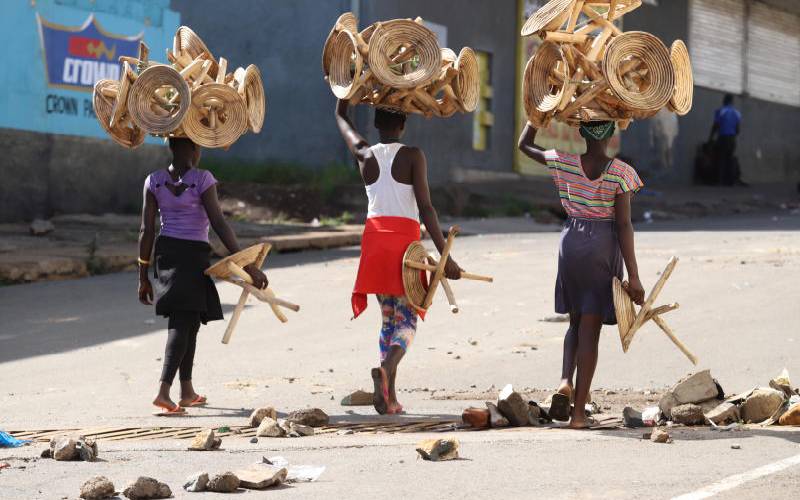×
The Standard e-Paper
Smart Minds Choose Us

It is 8pm and three children are wandering on the streets of Kisumu, selling homemade detergents and groundnuts.
The eldest, who appears about 10-years-old, clutches a bag with four plastic bottles of some coloured fluid, as his younger siblings trudge along.